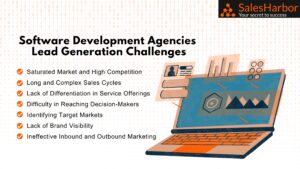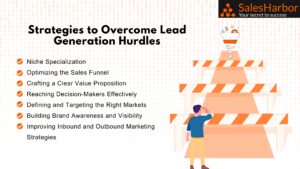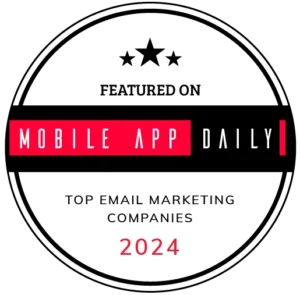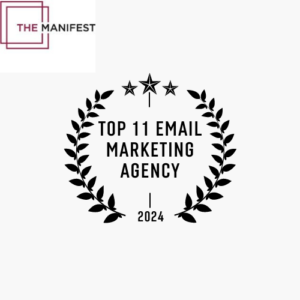Lead generation is essential for any business, but software development companies/agencies face unique challenges. Whether you’re an agency founder or part of a lead generation team, you’ve likely struggled to consistently attract and convert quality leads.
This is even more challenging for software development companies that built their business on freelancing platforms like Upwork , freelancer or Fiverr. These platforms, once a reliable source of projects, have become oversaturated with low-budget offers and intense competition.
As a result, agencies now find it difficult to secure high-value contracts, with many clients focusing on price over quality. To succeed, agencies need to adapt and come up with new, tailored strategies that meet the demands of today’s market.
This blog will explore the main challenges faced by software development agencies in lead generation and provide practical solutions to overcome them.
Lead Generation Challenges for Software Development Agencies

Many agencies struggle to find and convert high-quality leads due to various obstacles. By identifying these challenges, agencies can begin to create effective strategies to tackle them. Understanding these issues is the key to improving lead generation and ultimately growing the business.
1. Saturated Market and High Competition
The software development industry faces intense competition, with many agencies offering similar services. This makes it hard for any one agency to stand out. On top of this, freelancers and companies from lower-cost regions often provide services at cheaper rates, attracting price-conscious clients. This puts agencies in a tough position, as clients may opt for lower-priced options, regardless of the quality differences.
2. Long and Complex Sales Cycles
Sales cycles in the software development industry can be very long and complicated. Since custom software solutions often require a large investment, clients tend to take their time. They want to evaluate different vendors carefully to ensure they are making the right choice. This process can slow down how quickly agencies earn revenue and may strain their resources. Agencies need to manage this uncertainty and stay engaged with prospects over a longer period, which can be challenging.
3. Lack of Differentiation in Service Offerings
Many software development agencies provide similar services, which makes it challenging for clients to understand what makes each agency unique. Without a clear unique selling proposition (USP), these agencies can appear interchangeable. This lack of differentiation can negatively impact lead generation, as clients may only focus on price rather than the quality of service.
For instance, consider two agencies that both offer custom software development. If one agency specializes in developing applications for the healthcare sector while the other takes a more general approach, potential clients in the healthcare industry are more likely to choose the specialized agency.
A well-defined differentiation strategy is essential for agencies to showcase their unique value and expertise. When clients can see what sets an agency apart, they are more likely to make informed decisions that prioritize quality, leading to a stronger reputation and more successful partnerships.
4. Difficulty in Reaching Decision-Makers
Connecting with the right decision-makers is crucial for generating leads, but this can be tough. Agencies frequently encounter obstacles like gatekeepers or complex company hierarchies, making it difficult to reach key decision-makers such as CEOs, CTOs, or project managers. These barriers can hinder the agency’s ability to build valuable relationships, ultimately limiting their chances of securing new business opportunities.
When agencies can’t reach these decision-makers, they miss opportunities to showcase their services and expertise.
5. Identifying Target Markets
One of the most fundamental challenges is knowing exactly who to target. Agencies that do not have a clear understanding of their ideal customer profile (ICP) may end up wasting time on leads that are not a good fit.
A lack of focus can lead to inefficient marketing efforts, resulting in lower conversion rates. Knowing the right industries and types of clients to target is essential for effective lead generation.
6. Lack of Brand Visibility
Brand visibility is important in a crowded market. If potential clients don’t know about an agency or don’t trust its brand, they are less likely to engage. Many agencies find it difficult to build a strong online presence, which can limit their ability to attract leads. When brand awareness is low, agencies may struggle to differentiate themselves from their competitors, making it hard to capture the attention of prospective clients.
7. Ineffective Inbound and Outbound Marketing
Both inbound and outbound marketing strategies are important for lead generation, but many agencies do not execute them well. Poor inbound marketing means that the agency’s content may not attract the right audience, leading to low engagement. On the other hand, ineffective outbound marketing can result in wasted efforts, such as sending cold emails that do not resonate with potential clients. This inefficiency can lead to missed opportunities and a lower return on investment.
Strategies to Overcome Lead Generation Challenges

1. Niche Specialization
Focusing on a specific industry or technology niche can be a game-changer for software development agencies. Instead of trying to compete with general service providers, agencies that specialize in areas like AI, healthcare software, or fintech can establish themselves as experts. This makes it easier to stand out in a crowded market and attract clients who need specific expertise.
Specialization allows an agency to deeply understand the unique challenges and needs of that industry, enabling them to offer more tailored and effective solutions. Clients are more likely to trust and engage with an agency that speaks their language and has a track record in their field.
For instance, focusing on a niche also helps agencies create content, case studies, and marketing materials that resonate with a specific audience. This further strengthens their positioning as industry leaders.
2. Optimizing the Sales Funnel
To reduce long sales cycles, agencies can streamline their sales funnel by automating lead nurturing through tools like email marketing. This keeps prospects engaged over time, even if they’re not ready to buy immediately. Offering trust-building content, such as case studies, testimonials, and industry-specific insights, helps demonstrate the agency’s expertise and reliability.
Regularly analyzing and refining the sales funnel is crucial. By identifying where leads drop off or lose interest, agencies can make targeted improvements. This ensures prospects receive the right content at the right time, further speeding up the decision-making process and leading to faster deal closures.
3. Crafting a Clear Value Proposition
A strong, clear value proposition helps agencies communicate why they are the best choice for potential clients. By focusing on their unique strengths—whether it’s faster project delivery, cost savings, or deep industry expertise—agencies can attract high-quality leads who are more likely to convert.
Example: An agency that offers custom mobile app development for the healthcare sector should clearly communicate the benefits of its expertise in navigating healthcare regulations, ensuring that potential clients see the agency as a specialized partner rather than a generic service provider.
4. Reaching Decision-Makers Effectively
Connecting with key decision-makers is crucial for successful lead generation, and LinkedIn is one of the most effective platforms for this purpose. By using LinkedIn or LinkedIn Sales Navigator, agencies can identify the right contacts, such as CEOs, CTOs, or Managers within their target industries and craft personalized outreach messages that resonate.
Implementing Account-Based Marketing (ABM) strategies allows agencies to focus on high-value accounts, tailoring their approach to meet the specific needs of decision-makers. This targeted, relationship-driven approach significantly improves the chances of building trust and securing valuable business opportunities.
5. Defining and Targeting the Right Markets
Success in lead generation starts with a clear understanding of who you’re trying to reach. Defining the right target market is the foundation for attracting high-quality leads.
Agencies must clearly define their ideal customer profile, considering factors such as industry, company size, budget, and specific pain points. A well-defined target market allows agencies to focus their marketing efforts more effectively, ensuring they attract prospects who are a strong fit.
With this clarity, agencies can create tailored inbound and outbound campaigns that speak directly to the needs and challenges of their ideal clients, resulting in higher engagement and better conversion rates. Without this focus, marketing efforts can become scattered and inefficient, reducing overall impact.
6. Building Brand Awareness and Visibility
Building brand awareness and visibility is very important for any agency that wants to succeed in a crowded market. When potential clients recognize and trust your brand, they are more likely to reach out and ask for your services.
To increase your brand visibility, agencies can use SEO and popular social media platforms like LinkedIn, Facebook, and X. By regularly sharing helpful content and engaging with followers, agencies can connect with their audience and make their brand more noticeable.
Listing your agency on well-known business directories, such as Clutch, Crunchbase, and Google Business Profile, is another effective way to boost brand awareness. These directories help build trust and make it easier for potential clients to find your services when they search online.
Combining a strong social media presence with listings on these directories creates a powerful approach to increasing brand visibility. This simple strategy can help agencies stand out from the competition and attract new clients.
7. Improving Inbound and Outbound Marketing Strategies
To enhance inbound marketing, agencies should focus on creating valuable content that addresses the questions potential clients are asking. By writing helpful articles, guides, and FAQs, an agency can improve its chances of ranking higher in Google search results, which helps attract more leads.
For outbound marketing, agencies need to personalize their outreach efforts, whether through email or LinkedIn. Targeting specific decision-makers and tailoring messages to meet their needs is crucial for engagement.
Example: If an agency is struggling with website traffic, it can implement an SEO strategy to boost its blog’s visibility. Simultaneously, the agency should refine its outbound emails to ensure they reach prospects who fit its ideal client profile. Combining these strategies can significantly improve lead generation and client connections.
Tools and Resources to Support Lead Generation
1. CRM Systems for Lead Management
Implementing a Customer Relationship Management (CRM) system, such as HubSpot or Salesforce, can significantly enhance how agencies manage their leads. These platforms enable agencies to track client interactions, automate follow-ups, and prioritize leads that are most likely to convert. By centralizing client data, CRMs make it easier to nurture relationships and stay organized throughout the sales process.
2. Marketing Automation Platforms
Using marketing automation tools like ActiveCampaign or Marketo allows agencies to streamline their email campaigns and lead nurturing processes. These platforms can automate repetitive tasks, such as sending follow-up emails and tracking engagement, which saves time and boosts efficiency. By automating these tasks, agencies can focus on crafting quality content and strategies that resonate with potential clients.
3. LinkedIn Automation and Sales Tools
LinkedIn automation tools like Bearconnect, simplifies the outreach process to potential clients. These tools assist agencies in identifying ideal prospects, personalizing their outreach efforts, and building meaningful relationships with key decision-makers. By leveraging LinkedIn effectively, agencies can expand their network and enhance their lead-generation efforts.
Bonus Tip: The Benefits of Outsourcing Lead Generation to Experts

For many software development agencies, finding the time and resources to effectively manage lead generation can be challenging. This is where outsourcing to a specialized B2B lead generation company becomes a valuable option. By partnering with experts, agencies can save time and cut costs while ensuring they focus on their core services.
Outsourcing allows a dedicated team to handle all aspects of prospecting and lead qualification, freeing internal teams to concentrate on project delivery and client satisfaction. This not only enhances operational efficiency but also improves the quality of leads generated.
For instance, a software development agency that chose to outsource its lead generation experienced a noticeable increase in high-quality leads. By leveraging the expertise of an external team, they reduced their overhead costs and saved valuable time that could be redirected toward enhancing their services and accelerating business growth. This strategic move allowed them to maintain a steady pipeline of potential clients without the strain of managing the lead generation process in-house.
Conclusion
Generating quality leads for software development agencies can be challenging, but it doesn’t have to be. By focusing on niche markets, refining marketing strategies, and leveraging tools like CRMs and automation, agencies can boost their lead generation efforts. Increasing brand visibility and targeting the right audience are also crucial steps.
Outsourcing lead generation to specialized teams is another smart option, saving time and ensuring high-quality leads while letting your team focus on delivering great services.
Looking to overcome these challenges? At SalesHarbor, we specialize in personalized outreach strategies designed to connect you with the right clients and drive business growth. Schedule a quick intro call today to discover how we can help drive your business growth.



